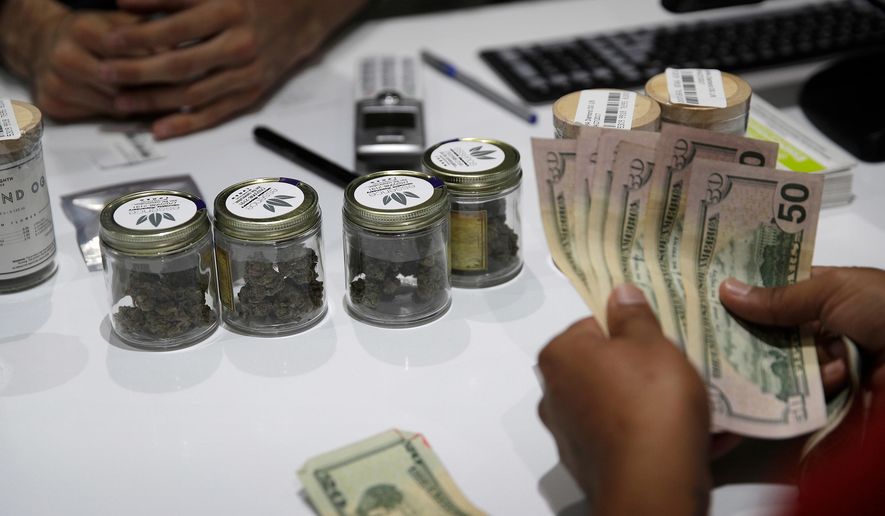Marijuana legalization in New Jersey is nearer than ever as the result of a broad agreement tentatively reached among leading state Democrats, local outlets reported Friday.
Gov. Phil Murphy and Stephen Sweeney, the president of the state Senate, both Democrats, have come to a consensus on how to tax and regulate the sale of recreational marijuana following months of negotiating the matter, the reports said.
Mr. Murphy campaigned on legalizing marijuana prior to being elected in 2017, but issues including a disagreement among Democrats over how to tax the plant had prevented related efforts from advancing.
The New Jersey Globe first reported that Mr. Murphy and Mr. Sweeney had appeared to reach a deal to let the state legislature vote on a bill agreed by both. New Jersey Advance Media and New Jersey Politico subsequently corroborated that report, citing several anonymous legislative and industry sources.
Mr. Murphy and Mr. Sweeney reached the agreement during discussions Thursday with Assembly Speaker Craig Coughlin, another Democrat, Politico reported.
If passed, the bill would legalize recreational marijuana within New Jersey, impose a $42 per ounce tax on sales and allow the governor to unilaterally appoint members to the yet-to-be-created state Cannabis Regulatory Commission, Politico reported.
“We don’t have a final deal,” said state Sen. Nicholas Scutari, a Democrat and prime sponsor of the bill. “There still are more details to be worked out, but the two sticking points (taxes and a commission regulating the industry), we are there. But we are not finalized,” he told NJ Advance Media.
Mr. Murphy last year proposed legalizing recreational marijuana and taxing retail sales at 25 percent – a scheme he expected to generated upwards of $60 million in annual revenue for the state. Mr. Sweeney predicted at the time that a similar proposal would pass, but he called the 25 percent tax rate “too high” and suggested 12 percent instead.
“I don’t want to put it too high because people won’t buy it legally — they’ll buy it illegally,” Mr. Sweeney said last year.
Rather than taxing marijuana sales at 25 percent or 12 percent, the deal reportedly reached in New Jersey this week would impose a tax on weight, $42 per ounce, protecting the state from the possibility of falling retail prices hurting its return.
Ten states and D.C. have passed laws legalizing the recreational use of marijuana, including seven that allow licensed dispensaries to operate, flying in the face of longstanding federal prohibition.
Thirty-three states have passed laws legalizing the medicinal use of marijuana to varying degrees, meanwhile, including New Jersey in 2010.
• Andrew Blake can be reached at ablake@washingtontimes.com.




Please read our comment policy before commenting.